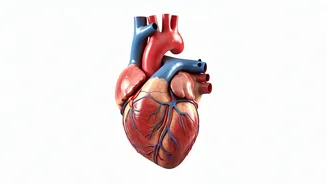Dangerous Habits Unveiled
Cardiologists have pinpointed several everyday habits that pose significant threats to heart health. Sleep deprivation tops the list, ranked as a 10 out
of 10 in terms of danger. Similarly, stress and vaping are also deemed highly dangerous, each scoring an 8 and 10 out of 10 respectively. Alcohol consumption, another habit rated a 10, is also highly detrimental. Additionally, the consumption of soda is considered harmful, with a rating of 4 out of 10. These ratings reflect the severity of each habit’s impact on cardiovascular well-being, emphasizing the importance of awareness and modification of these behaviors for better heart health.
Sleep Deprivation's Impact
Sleep deprivation, critically rated as a 10 out of 10 threat by heart specialists, profoundly affects heart health. Chronic sleep loss can elevate blood pressure and increase the risk of inflammation, both of which are major contributors to cardiovascular diseases. The body needs adequate rest for optimal function, including the cardiovascular system. Insufficient sleep disrupts the natural rhythm of the heart, placing undue stress on it. Regular poor sleep can lead to serious conditions like heart attacks and strokes. Prioritizing consistent, quality sleep is crucial for heart health, recommending at least seven to eight hours of sleep each night to allow the heart to recover and function efficiently. It is advised to establish a regular sleep schedule to support the heart's overall well-being and reduce cardiovascular risk.
Stress' Adverse Effects
Stress, ranked an 8 out of 10 in terms of harm, significantly impacts heart health. When the body experiences stress, it releases hormones like cortisol and adrenaline, which can elevate blood pressure and heart rate. Prolonged periods of elevated stress can lead to inflammation and damage within the blood vessels, increasing the risk of heart disease. Furthermore, stress often leads to unhealthy coping mechanisms such as overeating, smoking, and excessive alcohol consumption, which further strain the heart. Managing stress through techniques like meditation, exercise, or spending time in nature is essential. Implementing stress management strategies can help safeguard the heart from the negative effects of chronic stress, promoting better cardiovascular health and overall wellness.
Vaping's Cardiological Risks
Vaping, another lifestyle choice receiving a high-risk rating of 10 out of 10, poses significant dangers to heart health. E-cigarettes contain nicotine and other chemicals that can damage the blood vessels and promote inflammation. Nicotine increases heart rate and blood pressure, making the heart work harder. Over time, these effects can lead to the development of atherosclerosis, where plaque builds up in the arteries, increasing the risk of heart attacks and strokes. Additionally, the chemicals inhaled through vaping can harm the heart muscle directly. The long-term effects of vaping are still being researched, but the available evidence suggests that vaping is harmful to cardiovascular health. Avoiding vaping is crucial to protect heart health and maintain overall cardiovascular function.
Alcohol and the Heart
Alcohol consumption, another habit classified as a 10 out of 10 danger, has significant implications for heart health. Excessive alcohol intake can lead to high blood pressure, increased triglycerides, and irregular heartbeats (arrhythmias), all of which can increase the risk of heart disease and stroke. Chronic alcohol abuse can also weaken the heart muscle, leading to a condition called alcoholic cardiomyopathy. Moderate alcohol consumption, if any, is recommended to prevent adverse effects on the cardiovascular system. The impact of alcohol on the heart varies from person to person, so consulting a healthcare professional is crucial. Monitoring and controlling alcohol intake is therefore essential for safeguarding heart health and maintaining a healthy lifestyle.
Soda's Heart Health Impact
Consumption of soda, rated at 4 out of 10, may seem less dangerous than the other habits listed, but it still poses risks to heart health. Soda contains high amounts of sugar, which can contribute to weight gain, insulin resistance, and increased levels of triglycerides, all of which are risk factors for heart disease. Regular consumption of sugary drinks can also lead to inflammation in the body. Furthermore, soda often lacks any nutritional value, providing empty calories. Replacing soda with water, unsweetened tea, or other healthier beverages can significantly improve heart health. Limiting soda consumption is essential for reducing the risk of cardiovascular diseases and promoting overall well-being. Focusing on a balanced diet and regular exercise is recommended.












